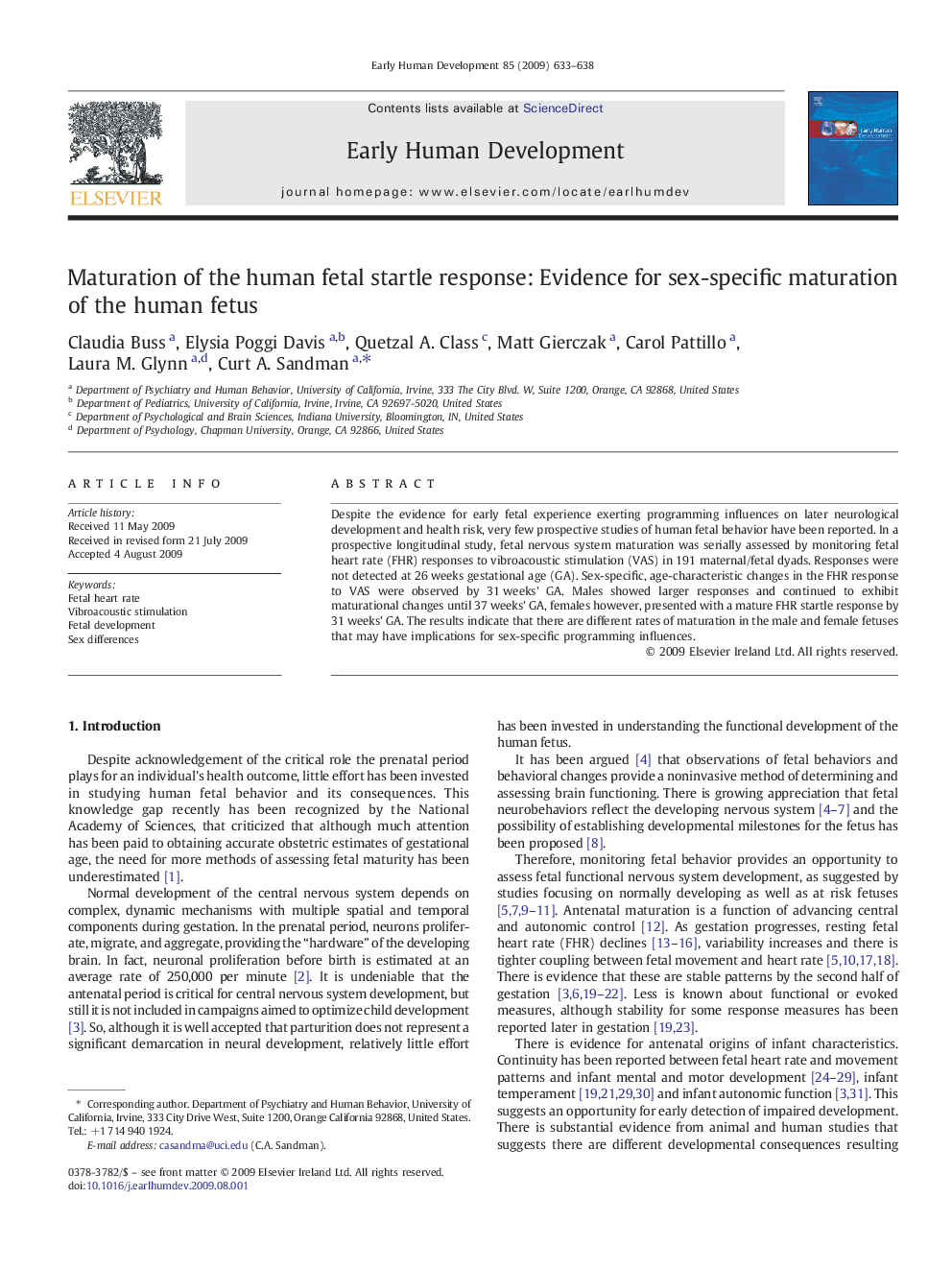| Article ID | Journal | Published Year | Pages | File Type |
|---|---|---|---|---|
| 3918001 | Early Human Development | 2009 | 6 Pages |
Despite the evidence for early fetal experience exerting programming influences on later neurological development and health risk, very few prospective studies of human fetal behavior have been reported. In a prospective longitudinal study, fetal nervous system maturation was serially assessed by monitoring fetal heart rate (FHR) responses to vibroacoustic stimulation (VAS) in 191 maternal/fetal dyads. Responses were not detected at 26 weeks gestational age (GA). Sex-specific, age-characteristic changes in the FHR response to VAS were observed by 31 weeks' GA. Males showed larger responses and continued to exhibit maturational changes until 37 weeks' GA, females however, presented with a mature FHR startle response by 31 weeks' GA. The results indicate that there are different rates of maturation in the male and female fetuses that may have implications for sex-specific programming influences.
